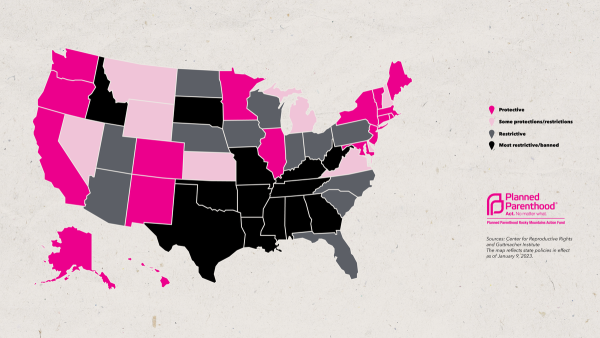Respect for Marriage Act makes its way to the senate
Senate Majority leader and New York Democratic Senator Chuck Schumer leads a march in support of the Respect for Marriage Act.
November 8, 2022
After the overturn of Roe v. Wade, which stated that the right to privacy of the Fourteenth Amendement does not protect the right to an abortion, the Supreme Court is now reviewing other cases that were decided on the basis of Roe v. Wade’s precedent such as Obergfell v Hodges (2015) – which legalized gay marriage – and Loving v Virginia (1967) – which legalized interacial marriage. In response, many politicians are rushing to pass laws that would write the protection of LGBTQ+ rights and interacial marriage rights into law. As of now, with the rights being justified with court cases, they face the possibility of being left up to the interpretation of a conservative supreme court. The bill’s sponsor, Representative Jerrold Nadler (D-NY) , and his cosponsors drafted the Respect for Marriage Act. On July 19, the act was passed in the House, and is set to be debated in the Senate following November midterm elections. The act has drawn a lot of media attention, but what happens if it passes?
The bill would also repeal and replace current provisions that don’t require states to regonize same-sex marriages from other states or provisions in states that identify marriage as between a man and a woman.
As of recently, the bill has been passed in the House with a majority vote, supported by 220 Democrats unanimously and 47 Republicans. There were 157 Republican votes against it. Criticism of the bill calls it unnecessary and trying to fix an issue that’s already been settled. In the US, 71% of the population supports same-sex marriages being regonized by the law and receiving the same rights as traditional marriages. The Senate is pretty evenly representative of the two main parties, so the vote will likely be a similar ratio to how the bill was voted on in the house.
For LGBTQ+ individuals and interacial couples at LFA and all over the country, it is a nerve-wracking time and a supportive community is critical. Years ago, support from students and faculty for Obergfell was big leading up to the decision. As faculty sponsor of GSA Mrs. Sorenson recalled, “a sizable group of LFA students, faculty and staff traveled to Springfield in the fall of 2013 to attend a march in support of marriage equality in IL.” That same close compassionate community is needed again now. When asked what LFA community members can do to support the LGBTQ+ population at the school, head of GSA Evelyn King said, “Be aware of the history behind derogatory words and what you’re saying in the hallways.” She continued, “Staying educated on what’s going on is especially important on something like the bill that has the potential to be reversed which would be detrimental to a lot of people here.”
In terms of marriage rights for all individuals, our country has made substantial progress, and it’s critical we preserve and protect this progress.















